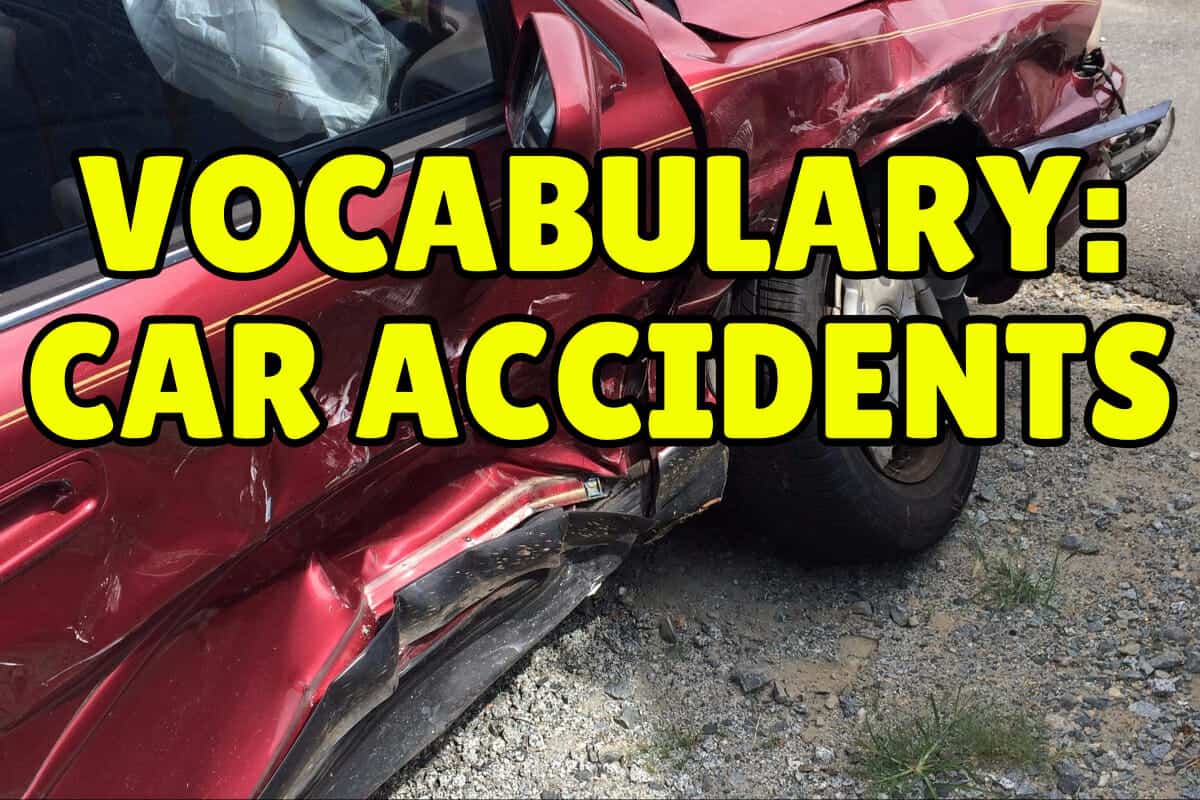

The majority of people today have a high-resolution camera right in their pockets. Others, however, may require expert analysis to determine what they mean, such as the direction and location of skid marks.
#Word vs word car accident driver#
Some details may be obvious, such as the fact that the other driver struck your vehicle from behind. Nothing establishes the truth about an accident better than photos substantiating what you observe at the scene. Remember, then, that a picture is worth a thousand words. To recover compensation, you need something more than just your word. Without proof of relevant details about the accident (such as the position of the vehicles, conditions at the scene, etc.), the basic facts may boil down to your version of events versus that of the other driver. The following steps are the best way to prove that your account of the accident is accurate and reliable: 1. If you are calm, however, you can take action at the scene to begin building your car accident case. Becoming angry will not get you anywhere, and it may cause problems at a later date. The most important thing to do after being in a car accident is to take a breath and remain calm. Such exchanges can become very heated, potentially making both motorists say and do things that they later regret. In the heat of the moment, the driver of a vehicle may ignore all indications to the contrary in asserting that the driver in the other vehicle caused the crash. Paraplegia, Quadriplegia, & Amputation InjuriesĪfter a collision, fault for the accident is a common topic of dispute.Texas Explosions & Refinery Accident Lawyers.Texas Aerial Lift Construction Accident Attorney.Need help with your personal injury case? Give us a call or text us today. We want to make the entire process easier on you, regardless of whatever semantics are being debated. Automotive accidents (or collisions) are a stressful and often painful time. Our job is to hear your story, gather the details, and see if we can make a case for you. What matters most is making sure you’re protected and are getting the support you need in the legal system.Īt Elsner Law Firm, that’s exactly what we do. We use the term accident across our website because it’s a much more ubiquitous term. “Collision” is technically the most accurate term to use when vehicles collide, but there may be times with your insurance that you want to use “accident”. In the end, your case is going to be determined by the evidence, witness accounts, and your legal representation. We’re still largely dealing with semantics here, but they’re semantics that can reframe an incident – at least in terms of insurance and public perception. Government agencies as well are trying to distance themselves from the term “accident”, drafting laws with the term “collision instead”. That’s why experts who look at these types of situations will often refer to themselves as “collision reconstructionists” instead of “accident reconstructionists”. “Collision”, on the other hand, is a bit more unbiased and stoic description of the incident. It implies that someone was at fault or that there was some semblance of negligence involved on one of the parties. Insurance companies are more prone to use the term “accident” because it lowers the responsibility factor. So, which term should you be using to describe your personal injury incident? Why Does it Matter? Even the Associated Press (AP) favors “crash” over “accident”. It’s a conversation that’s been going on for a long time – just look at this abstract from 2002 where the author insists an axing of the term “accident”. Understanding what each word means is crucial whether you’ve been involved in some sort of vehicular incident or just to know for future reference in the off chance something happens. It may just seem like a grammatical issue or maybe even a personal vocabulary preference, but the way you use the words carries a lot of weight in your insurance case. As WNCN points out, even the phrase “crash” can carry unwanted connotations that don’t accurately describe the situation in the view of the law. This is a bit subjective though and it really depends on who you talk to. Collision implies there’s no one to blame whereas accident can imply that someone is at fault. Are “accidents” And “collisions” The Same Thing?


 0 kommentar(er)
0 kommentar(er)
